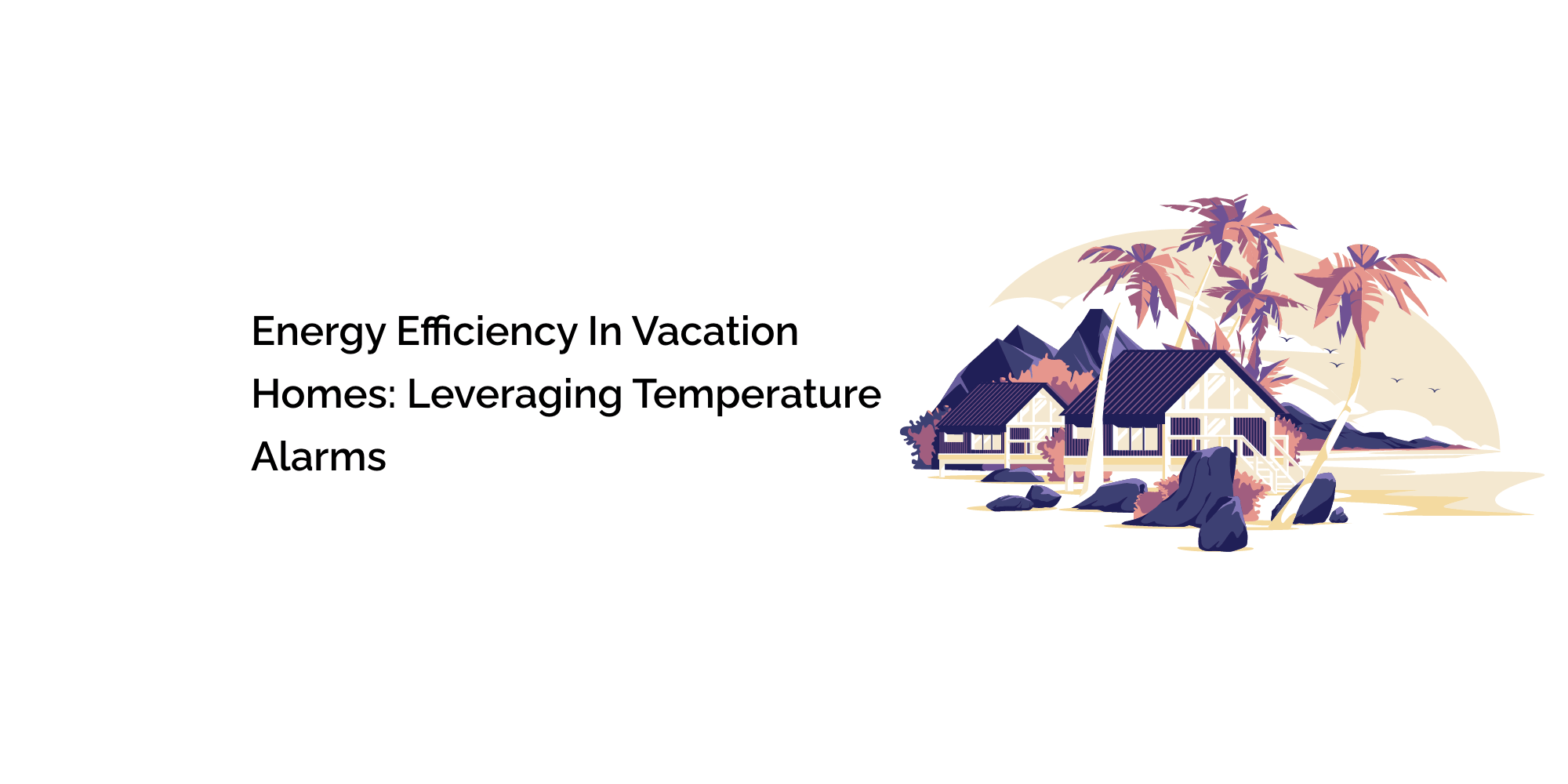Energy efficiency is a crucial consideration for vacation homeowners, not only for environmental reasons but also to reduce operating costs and enhance the overall sustainability of their properties. One effective tool for energy efficiency in vacation homes is leveraging temperature alarms. These alarms provide precise temperature control, allowing homeowners to optimize energy usage and minimize waste. In this blog, we will explore the concept of energy efficiency in vacation homes and the role that temperature alarms play in achieving this goal. We will discuss the benefits of energy-efficient practices, how temperature alarms contribute to energy savings and practical strategies for leveraging these alarms effectively. By implementing energy-efficient measures and utilizing temperature alarms, vacation homeowners can reduce their ecological footprint while enjoying the comfort and savings of efficient energy management.
Understanding the Importance of Energy Efficiency in Vacation Homes
We will discuss the significance of energy efficiency in vacation homes, highlighting the environmental, financial, and sustainability benefits. Exploring the impacts of excessive energy consumption and the potential for energy waste will underscore the importance of adopting energy-efficient practices.
The Role of Temperature Alarms in Energy Efficiency
Temperature alarms play a crucial role in energy efficiency by precisely controlling temperature settings. We will explore how these alarms contribute to energy savings by preventing excessive heating or cooling, optimizing energy usage based on occupancy, and avoiding temperature extremes that may lead to unnecessary energy consumption.
Optimizing Temperature Settings for Efficiency
We will discuss practical strategies for optimizing temperature settings in vacation homes to maximize energy efficiency. This includes setting temperature ranges based on occupancy, utilizing setback or vacation modes during periods of unoccupancy, and considering local climate conditions to avoid unnecessary heating or cooling.
Utilizing Programmable Thermostats and Smart Controls
When combined with temperature alarms, programmable thermostats, and intelligent control systems offer advanced energy management capabilities. We will explore how these technologies allow homeowners to schedule temperature adjustments, remotely control settings, and integrate with occupancy sensors or weather forecasts for further energy optimization.
Leveraging Temperature Alarms for Efficient HVAC Systems
Temperature alarms can optimize the performance of HVAC (heating, ventilation, and air conditioning) systems, ensuring energy-efficient operation. We will discuss how temperature alarms can monitor HVAC performance, detect malfunctions or inefficiencies, and provide alerts to prompt timely maintenance or repairs, preventing energy waste.
Preventing Energy Waste from Air Leaks and Insulation Issues
Temperature alarms can help identify air leaks and insulation issues contributing to energy waste. We will explore how these alarms can detect temperature deviations caused by drafts or insufficient insulation, enabling homeowners to take corrective measures to enhance energy efficiency.
Utilizing Data Analytics for Energy Insights
When integrated with data analytics tools, temperature alarms provide valuable energy insights. We will discuss how analyzing temperature data, occupancy patterns, and energy consumption trends can reveal opportunities for further efficiency improvements. Homeowners can identify energy-saving strategies, make informed decisions, and track the effectiveness of energy-efficient measures.
Educating Guests about Energy-Conscious Behavior
Education plays a significant role in achieving energy efficiency in vacation homes. We will explore how homeowners can educate guests about energy-conscious behavior, such as turning off lights and electronics when not in use, adjusting temperature settings responsibly, and embracing sustainable practices during their stay.
Monitoring Energy Consumption and Tracking Savings
Monitoring energy consumption and tracking savings is essential for assessing the effectiveness of energy efficiency measures. We will discuss the importance of regularly monitoring energy usage, comparing data before and after implementing energy-efficient practices, and celebrating energy savings' financial and environmental benefits.
Certainly! Here are some frequently asked questions (FAQs) about energy efficiency and leveraging temperature alarms in vacation homes:
What is energy efficiency in the context of vacation homes?
Energy efficiency in vacation homes refers to optimizing energy usage to reduce waste and minimize environmental impact while maintaining a comfortable living environment. It involves implementing strategies and utilizing technologies that promote efficient energy management.
Why is energy efficiency important for vacation homes?
Energy efficiency is essential for vacation homes for several reasons. It helps reduce operating costs, minimize ecological footprint, improve sustainability, and contribute to environmental conservation. Additionally, energy-efficient practices can enhance the comfort and enjoyment of guests staying in vacation properties.
How do temperature alarms contribute to energy efficiency?
Temperature alarms contribute to energy efficiency by providing precise control over temperature settings. They prevent excessive heating or cooling, optimize energy usage based on occupancy, and help avoid temperature extremes that may result in unnecessary energy consumption.
Conclusion
Energy efficiency is crucial for vacation homeowners seeking to reduce their environmental impact and operating costs. By leveraging temperature alarms, homeowners can achieve precise temperature control, optimize energy usage, and minimize waste in their vacation homes. There are numerous strategies for enhancing energy efficiency, from setting optimal temperature ranges and utilizing programmable thermostats to leveraging data analytics and educating guests. By embracing energy-conscious practices and integrating temperature alarms into their overall energy management approach, vacation homeowners can contribute to a more sustainable future while enjoying the comfort and cost savings of an energy-efficient vacation home.








